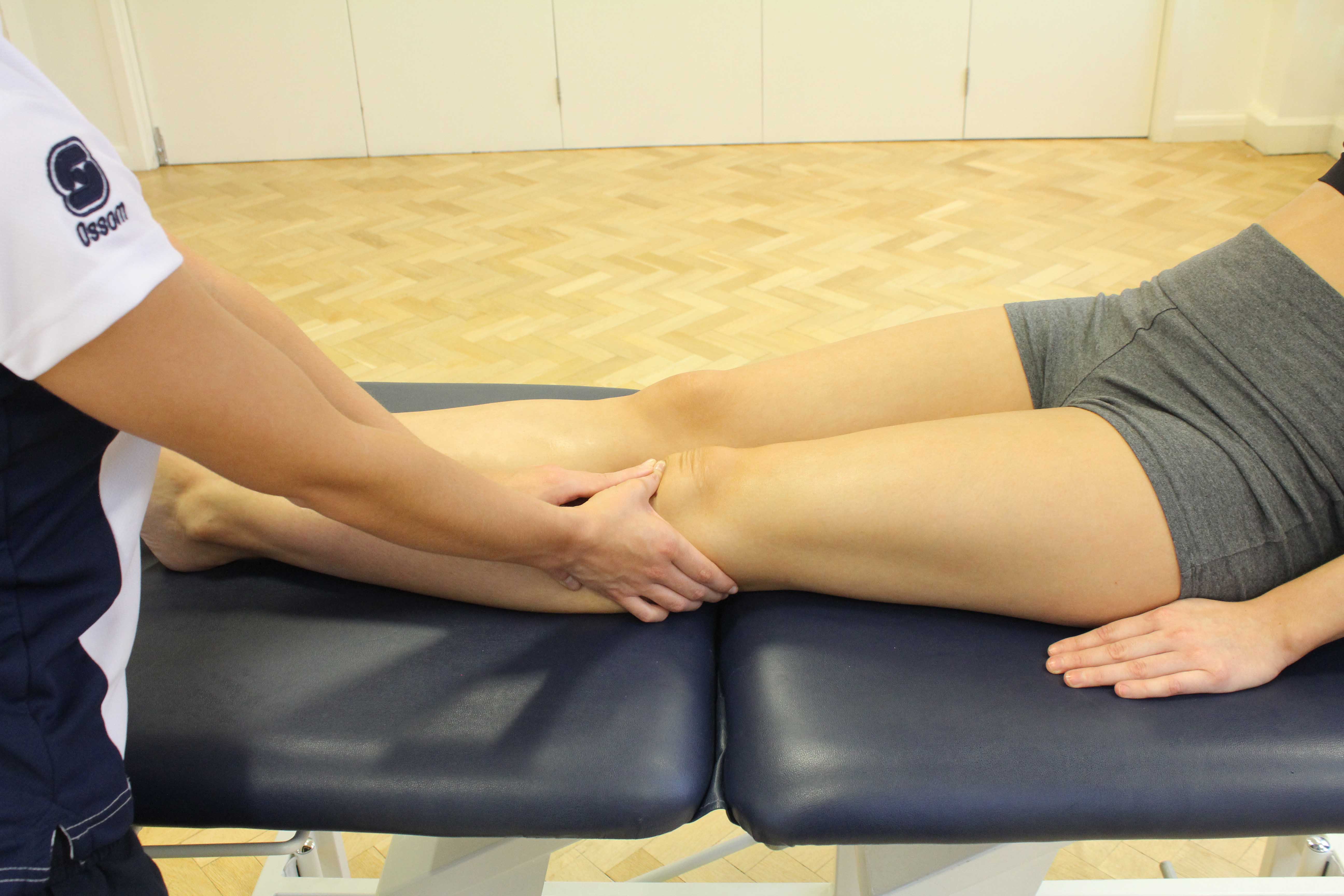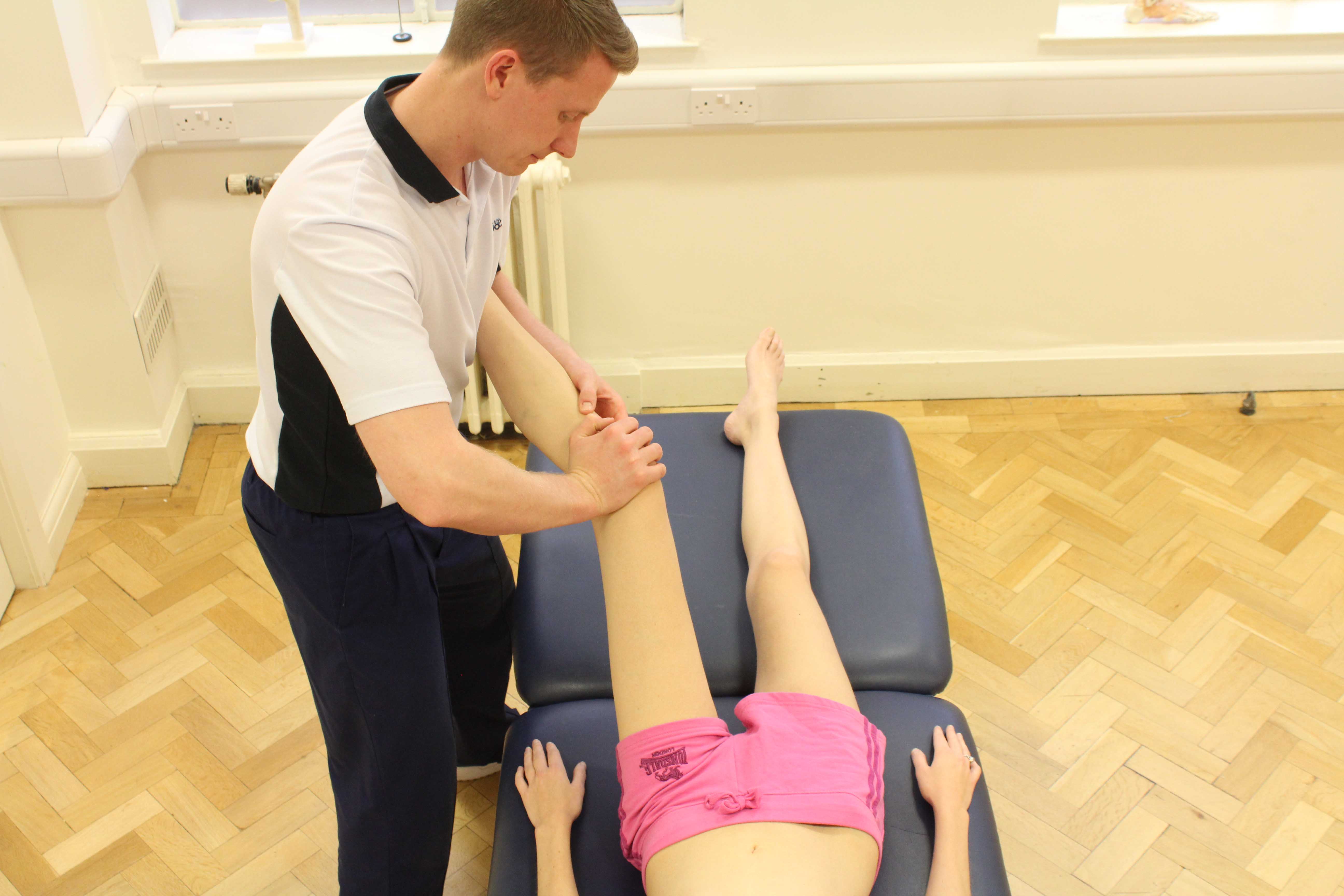What is a dislocated kneecap?
The kneecap, or patella, is the triangular bone at the front of the knee joint. A dislocation of the kneecap is when it moves out, and stays out of its normal position. Physiotherapy is an excellent treated for a dislocated kneecap.
How does a dislocated kneecap happen?
The kneecap can be dislocated by a direct blow to it, such as falling onto your knees. The kneecap is forced from its normal location, out to the side of the leg. Alternatively, the kneecap can also be dislocated when the knee is twisted such as during rapid changes in direction.
 Above: Therapist performing soft tissue massage on the patella and surrounding connective tissue.
Above: Therapist performing soft tissue massage on the patella and surrounding connective tissue.What are the symptoms of a dislocated kneecap?
Immediate and intense pain is felt over the front of the knee when the kneecap is dislocated. At the same time a sensation of the knee ‘giving way’ or something ‘popping out may be felt’. It is normally rather obvious that the kneecap has dislocated because the kneecap sits in an abnormal position. The knee usually swells within the first couple of hours after the injury. Other symptoms may include:
What should you I do if I have a dislocated kneecap?
If you have dislocated your patella you should immediately go to your nearest accident and emergency department as it will not get better without treatment. To ease pain and reduce swelling you can apply ice to your knee. This involves surrounding your knee with crushed ice or a bag of frozen peas wrapped in a damp tea towel.
 Above: Therapist performing knee assessment
Above: Therapist performing knee assessmentWhat shouldn’t I do if I have a dislocated kneecap?
If you have dislocated your kneecap you should not try to relocate the kneecap back into its socket yourself. If the kneecap is relocated incorrectly, it could delay your recovery or even cause irreparable damage to surrounding nerves, bones, ligaments or cartilage.
Physiotherapy treatment for a dislocated kneecap.
Once your kneecap is relocated you may be required to wear a brace for the first few weeks after your injury. However, you can start the initial stages of physiotherapy treatment immediately after your injury. Physiotherapy treatment after a dislocated kneecap consists:
Could there be any long-term effects from a dislocated kneecap?
The most common of long-term effect is recurrent or ongoing patellar dislocations. When the kneecap is dislocated the ligaments and tissues that support it are overstretched and, sometimes, torn. After a dislocation these ligaments and tissues may not be as tight as they were previously. This can make the joint less stable and can mean that it can dislocate again much more easily. Occasionally, when the kneecap is dislocated the cartilage on the underside of the patella can be damaged. Damage to this cartilage can prolong your recovery and increase your chance of developing osteoarthritis in the future.
To arrange a physiotherapy assessment call Physio.co.uk on 0330 088 7800 or book online.

 0330 088 7800
0330 088 7800


































